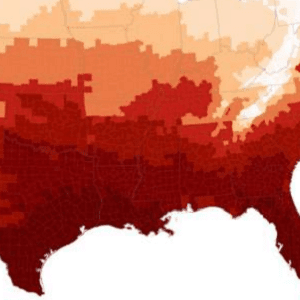A new study from the University of Southern California’s Leonard Davis School of Gerontology reveals that exposure to extreme heat may speed up biological aging in older adults, potentially exacerbating health disparities in minority communities. The research, published in Science Advances, highlights the intersection of climate change and public health, particularly for vulnerable populations.
The study found that individuals living in neighborhoods with more days of high heat showed greater biological aging on average than residents of cooler regions. This effect persisted even after controlling for socioeconomic and demographic differences, as well as lifestyle factors such as physical activity, alcohol consumption, and smoking.
Jennifer Ailshire, senior author and professor of gerontology and sociology, emphasized that older adults are particularly vulnerable to the effects of high heat. The combination of heat and humidity is especially problematic, as older individuals lose their ability to regulate body temperature through sweating effectively.
The research team used epigenetic clocks to analyze DNA methylation patterns, revealing that heat-related epigenetic changes can occur quickly and accumulate over time. Participants living in areas with extreme heat for half the year experienced up to 14 months of additional biological aging compared to those in cooler regions.
These findings have significant implications for minority communities, which are often disproportionately affected by urban heat islands and may have limited access to cooling resources. The study underscores the urgent need for heat mitigation strategies, especially as global temperatures rise and populations age.
Policymakers, architects, and urban planners are urged to consider heat mitigation and age-friendly features when updating infrastructure. Suggestions include designing shaded sidewalks and bus stops, increasing urban green spaces, and planting more trees to combat the effects of extreme heat on vulnerable populations.
See: “Extreme heat may speed up aging in older adults, research suggests” (February 26, 2025)

